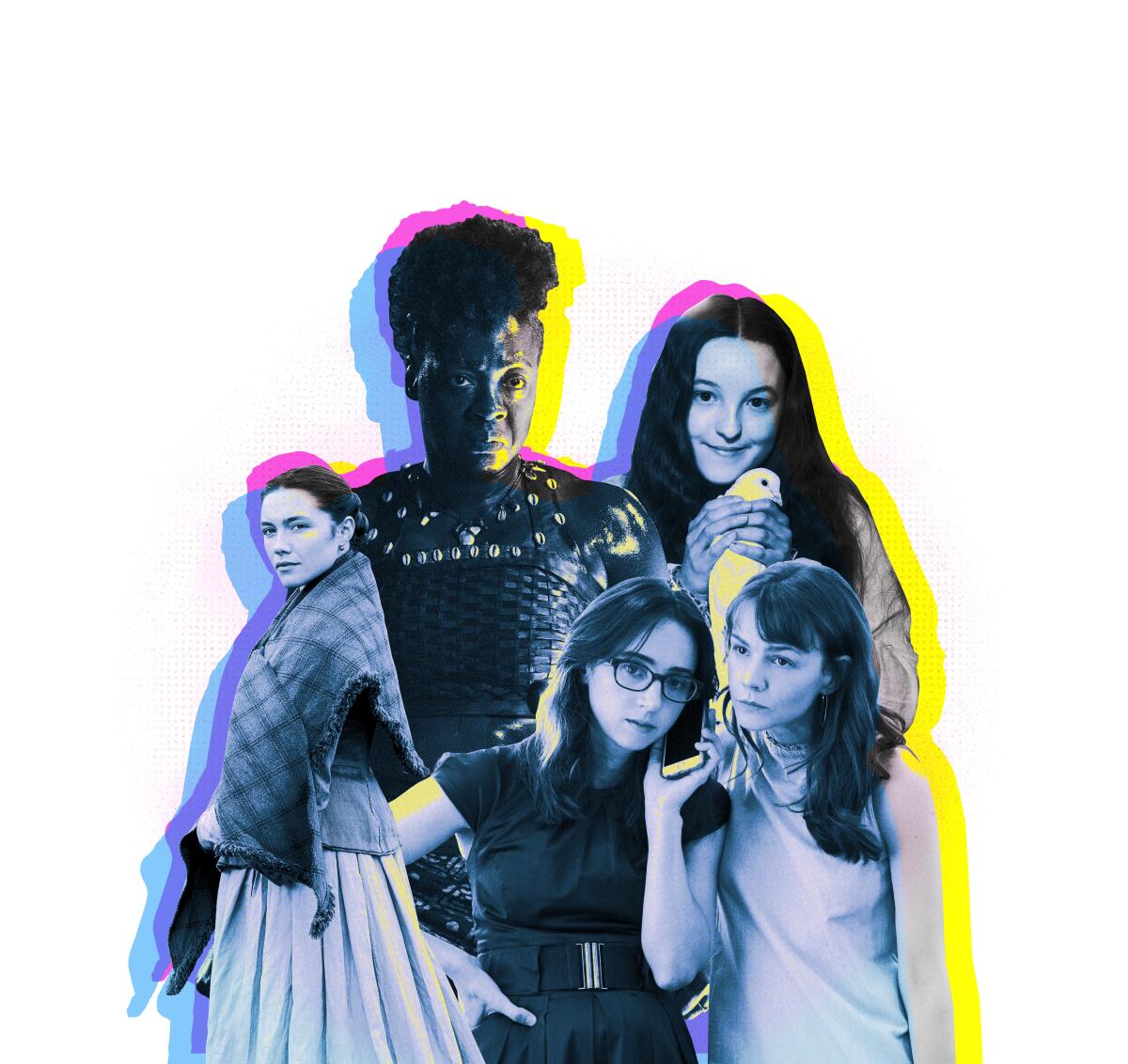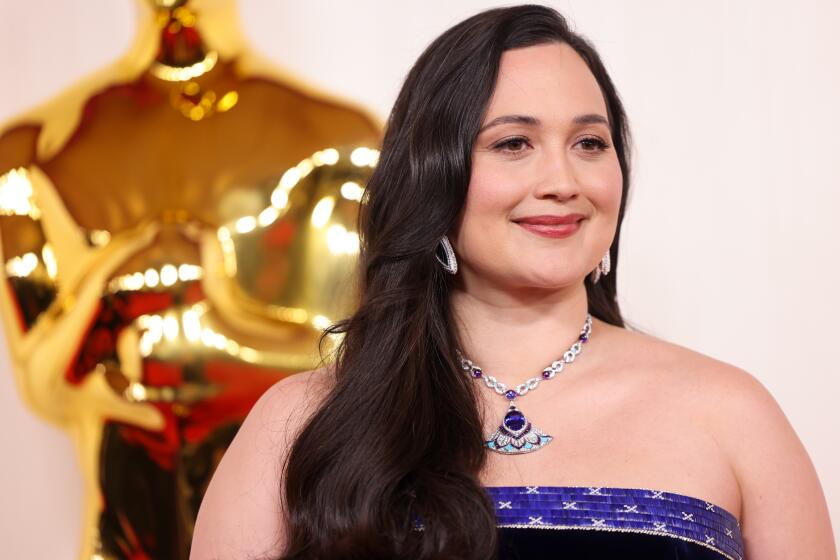This season, women can be found simmering in patriarchal systems — and fighting back

)
Five years ago, film producer Harvey Weinstein was outed as a serial sexual abuser in a New York Times article. Also in 2017, the #MeToo hashtag (created in 2006 by activist Tarana Burke) caught fire on social media and ignited an entire movement charged with elevating women’s voices about their own experiences with sexual harassment and abuse.
So it’s no surprise that, five years on, 2022’s Oscar season is full of films featuring women simmering in patriarchal systems and struggling to fight back against the ingrained misogyny around them. Consider “She Said,” director Maria Schrader’s fictionalized account of the story behind that New York Times investigation; co-directors Saela Davis and Anna Rose Holmer’s “God’s Creatures,” about an assault in a small Irish town; the historical tale of women warriors — and the cost of capture — “The Woman King,” directed by Gina Prince-Bythewood; and Sebastián Lelio’s adaptation of Emma Donoghue’s “The Wonder,” set in a 19th century Ireland, in which a young girl believes she no longer needs to eat. In these films, female protagonists are shown afresh, as living in a hostile world that underestimates them again and again.
To Schrader, the fact that there are a slew of films with similar themes — including “Women Talking,” about sexual abuse within an isolated religious community, “Call Jane,” about women aiding with illegal abortions, and even “Catherine Called Birdy,” about a 14-year-old who is not ready to be married off by her father — makes sense. “We all experienced a moment of catharsis in the weeks and months following the publication of the NYT investigation,” she writes in an email. “A dam of silence broke. Endless stories came out into the open from brave people, and it is only natural that their courage — and that sense of community and camaraderie — should serve as an inspiration for a new wave of storytelling based on modern-day heroines.”
Yet most of these films are not about real-life incidents; instead, they’re telling stories front-loaded with women who are learning to navigate the tricky male-dominated worlds they live in with assertiveness and an unwillingness to back down. “The Wonder” features a nurse (Florence Pugh) whose practical reasoning about a starving girl’s well-being is ignored in the face of a stone-faced male “committee” determined to see the child as a miracle.
Lelio, one of the only male directors telling these stories this season, says he noticed the trend emerging among the Telluride Film Festival selections in September. “These are films that have connections about rethinking the whole social contract and changing the story to lead to a more fair balance,” he says. “What we’re going through right now is identifying the cultural assumptions we’ve been operating with and been blind to because they’re so structural. It’s almost like seeing your own eyes.”
“God’s Creatures” is, in fact, about a mother whose own eyes slowly open to the suffocating patriarchy that protects her son after he’s accused of raping one of her co-workers — and how she’s culpable in it. “Aileen [Emily Watson] is awakening to the patterns that have existed all around her,” Holmer says. “It’s important to reframe them through this slight sense of horror; that these attitudes, patterns, power structures against women have been here the whole time. It’s about how do you reframe what is commonplace into true horror.”
It’s no small coincidence that women directors are insisting on being heard by telling stories in which their female protagonists are doing the same. “It couldn’t be a better time to show women as warriors at a time when Roe [vs. Wade] has been turned back and so many things are turning back about women’s rights,” says “King” producer Cathy Schulman. “It’s a crucial time and we’re thirsty for it. We couldn’t have planned for it, but it’s all in the air.”
Among many of these films, though, there are secondary plots that serve as important counterpoints to the female-centered stories being told: Men are shown as allies in more ways than one (“She Said” has two caretaking husbands and fathers; in “Women Talking,” a lone man records the women’s discussion with empathy; in “The Wonder,” a male journalist connects with the nurse’s plight). Each of the films presents not a monochromatic tale of women, but of humans trying to rethink the societal framework they’d been told was permanent and fixed.
To Lelio, that’s a critical shift, this ability to re-think the stories we’ve always told ourselves. “What happened in ‘The Wonder’ is not about saying, ‘This happened in 1862.’ It’s about saying, ‘This has always happened, it is happening and will always happen unless we change the story.’ We need a new framing for the way in which we read reality and roles and genders.”
These films are only opening salvos, though, Holmer says. “If we’re going to change [as a society], we’re going to have to have uncomfortable conversations as a culture. You can create art in order to foster dialogue and enable those very hard conversations. Even a millimeter of change is significant when we’re talking about eroding deeply problematic cycles and power structures.”
With multiple films covering similar territory, some might be concerned the message will get drowned out in Oscar season. But Schulman isn’t worried. “I think it will be embellished. The more stories written about the multitude of women’s lives, the better. One plus one plus one equals six, in this instance. There’s a big desire to be heard.”
More to Read
From the Oscars to the Emmys.
Get the Envelope newsletter for exclusive awards season coverage, behind-the-scenes stories from the Envelope podcast and columnist Glenn Whipp’s must-read analysis.
You may occasionally receive promotional content from the Los Angeles Times.






